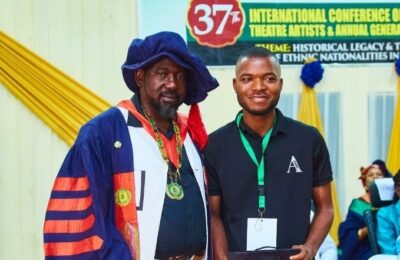Coup d’état according to the Oxford Dictionary is A violent and immediate seizure of state power, usually by armed forces, and with the implication of being undemocratic and unconstitutional. The first coup in Africa was situated in Togo and ever since, several coups have followed even to this day. The most common idea behind the military coup is to emancipate the masses from the corrupt jaws of civilian rule.
However, if one would trace keenly the history of military coups and their administration in Africa, the daunting task of demarcating its differences in terms of outward development in areas where the civil rule was alleged to fail would be imperative. Using the coup in Togo as a case study, Slyvanus Olympio was murdered in 1963 by a coup spearheaded by Étienne Eyadéma and Emmanuel Bodjolle, and the reasons given for the coup were economic problems and a failing economy. While Togo experienced development in the form of the construction of roads and bridges, and improvements in agriculture and mining, the yearning for freedom is ostensible. Togo operated under the firm hands of the military and its political administration was authoritarian, a one-way practice where the masses had little or no voice in the affairs of the state, this is the case in other African nations.
The military rule system can be best described as a “do as you are told” system, it is a no-nonsense system of operation that creates no room for opposition, citizens who openly confront the authoritarian practice are often seen as tyrants, and the penalty in most cases is death. This is evident with the murders of Ken Saro Wiwa of Nigeria, and Edith Mary Bataringaya of Uganda among a few other activists. The principle of press freedom is feckless as the media in most cases are controlled by the ruling authority. Idi Amin, the former military dictator of Uganda once aforementioned “There is freedom of speech but I cannot guarantee freedom after speech”. The statement best defines the fetter that is placed on the press by the military. In a state where the press is not free to perform its duties and tasks, the government operates with free will without any scrutiny, and it becomes accountable to nobody. The press is often used as a device to promulgate the agenda of the government in power.
Another characteristic of the military coup is incessant violence. Although there are cases of bloodless coups where the military takes control of power without coercion, it does not in any way abate the brutality of military government. The civil war in Nigeria claimed over 2.6 million lives, and the Rwanda genocide accounted for over 800 000 deaths, Idi Amin was nicknamed the butcher of Uganda for being responsible for over 500 000 deaths during his 5 years reign, this and other cases of gruesome killings are what constitute the nature of coup d’état in Africa.
The premise posited by most coup d’etat fanatics about military regimes being less corrupt and economically stable than civil rule is not entirely true. Nigeria has experienced an economic recession eight (8) times since her Independence, five (5) of which are in the military regime. The term ” kalabule” originated as a result of the perpetual corruption and economic distortion in Ghana from the year 1974 to 1979, This economic decadence during that period forced thousands of Ghanaians to find solace in neighboring countries. These events transpired in the military regime. The irony of the event is that the argument posited by the military as the reason for the takeover was corruption and economic instability. An estimated 300,000 people died from starvation in Somalia in 1992 depicting the highest rate of economic decadence that has ever been seen in Africa, This event also occurred in a military regime.
The recent coup in Niger is a matter of significant interest as it seems to involve external influences. The circle of military putsch always seems to be the same, the tales of the civilian rule being too corrupt and military rule being the only way out is also the idea behind the coup in Niger. The current coup is the fifth (5) in Nigers history and the story remains the same, it is a back-and-forth movement in economic and administrative operations.
There are a lot of ideas and concepts in support of the military regime and also a lot of people. But the fact remains that where there is limited freedom, the ones who have access to absolute freedom become gods over the former, The Nigerien coup has and is still claiming the lives of people, over six (6) Nigerian soldiers lost their lives in the act of preserving peace in Niger. These are external operatives, the death toll of Niger citizens would be higher. Coup détat has an ugly history in Africa, and if closely studied, it would be deduced that its negatives superseded its positives. George Santayana a famous philosopher and writer once said “Those who cannot remember the past are condemned to repeat it.”
– Emmanuel Ojodumi Prosper
Prince Abubakar Audu University, Anyigba.




